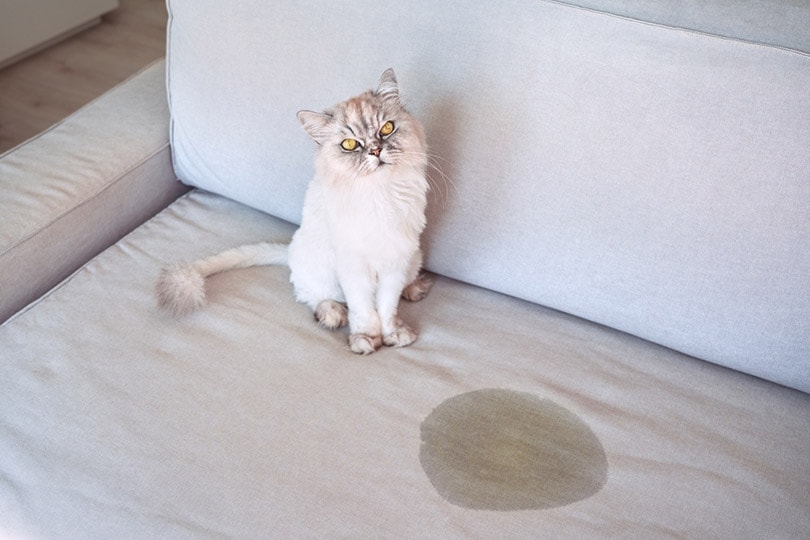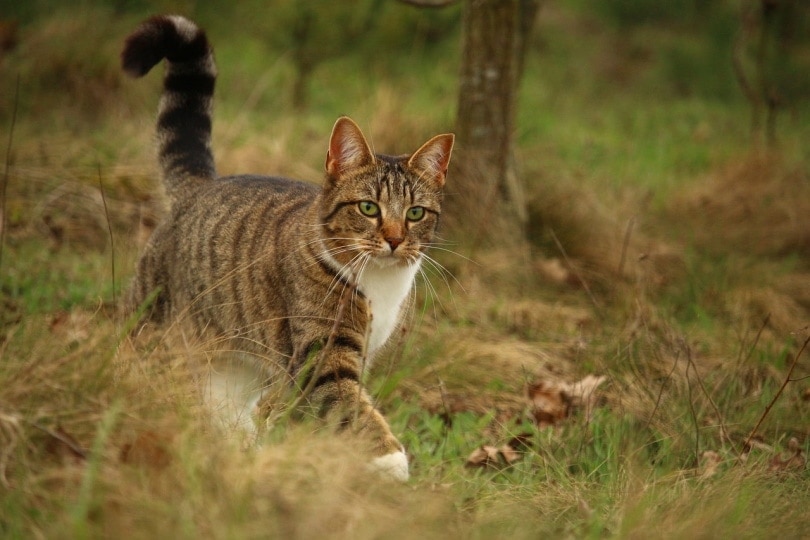Is Jasmine Toxic to Cats? 10 Species & Their Toxicity
By Hallie Roddy
Updated on
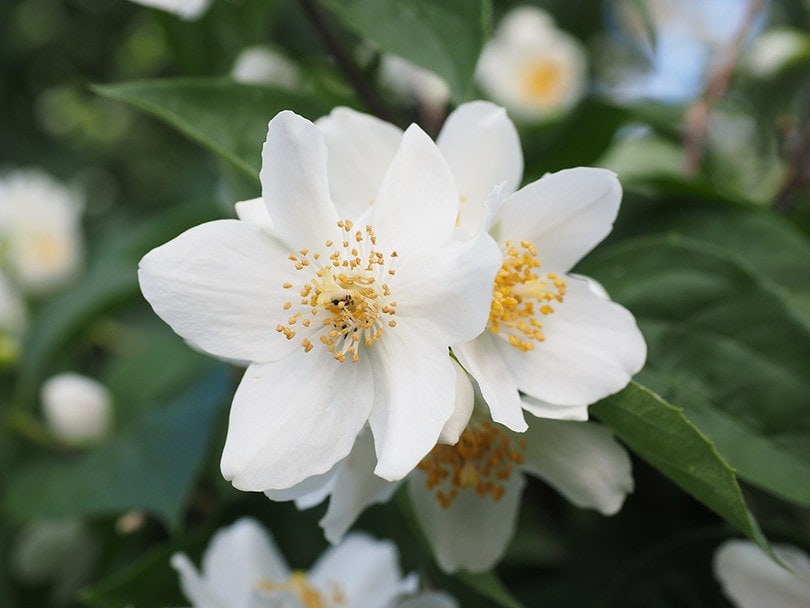
Humans love to fill their homes with beautiful plants and flowers that help bring a space to life. What most cat owners don’t know is that there are quite a few common houseplants that are toxic to cats, and you have to be extremely careful about your plant selection.
When it comes to Jasmine and whether it’s toxic to cats unfortunately isn’t that straightforward. True Jasmine has many different subspecies, some of which are safe for cats and some that are not. Read on below to find out more.
The 10 Jasmine Species
There are well over 200 different species of Jasmine, although there are only 10 types of true Jasmine plants. These plants can range from vining to evergreen, and they can live in nearly any USDA growing zone. We can’t cover all 200 subspecies of Jasmine, but we can focus on some of the most common types that people bring into their homes. Use this guide to help determine which plants are safe for your pets and which ones you need to keep outside and away from your cats.
Jasmine is a general name for dozens of plant species. Whether you’re familiar with them or not, you always need to do your research and ensure that they won’t cause any harm to your cat when you bring them indoors. Here are some of the most common types of Jasmine you may come across.
1. Brazilian Jasmine
Brazilian Jasmine (Mandevilla sanderi) belongs to the Dogbane family. It is an ornamental plant that is grown indoors in colder regions or outdoors during the summer. It is not toxic to either felines or canines however, it could cause some mild indigestion if it is consumed in large quantities.
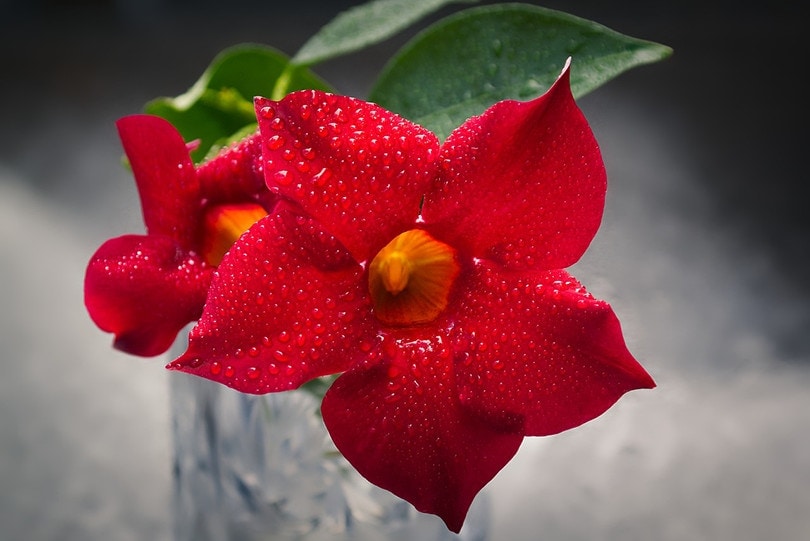
2. Cape Jasmine
Cape Jasmine (Gardenia jasminoides) is a part of the coffee family. They often grow in subtropical or tropical climates although people regularly use them as houseplants in temperate regions. These plants are toxic to cats as they contain compounds called geniposide and gardenoside that lead to severe stomach upset and illness in felines.
3. Carolina Jasmine
This is another Jasmine plant (Gelsemium sempervirens) belonging to the coffee family. You might hear people call it Gelsemium, Yellow Jessamine, Evening Trumpet, or Swamp Jessamine. They are usually used as garden plants in warm climates because they help cover walls, but some people do keep them as houseplants. This Jasmine is toxic to cats, it can be lethal within hours of ingestion. It could cause muscle weakness, paralysis, hypothermia, respiratory failure, seizures, vision problems, or death. Contact your veterinarian immediately if your cat eats this plant.

4. Crepe Jasmine
You might have heard this type of Jasmine (Tabernaemontana divaricata), referred to as the Pinwheel Flower, Nero’s Crown, or East India Rosebay. It does contain alkaloids that are toxic to cats. Signs of exposure include delirium, cardiotoxicity, and paralysis.
5. Chilean Jasmine
The beautiful Chilean Jasmine (Mandevilla laxa) ornamental flower can be grown indoors in colder regions or outdoors during the summer. It is not toxic to cats or dogs. Still, be careful that they don’t consume large quantities or it could give them an upset stomach.
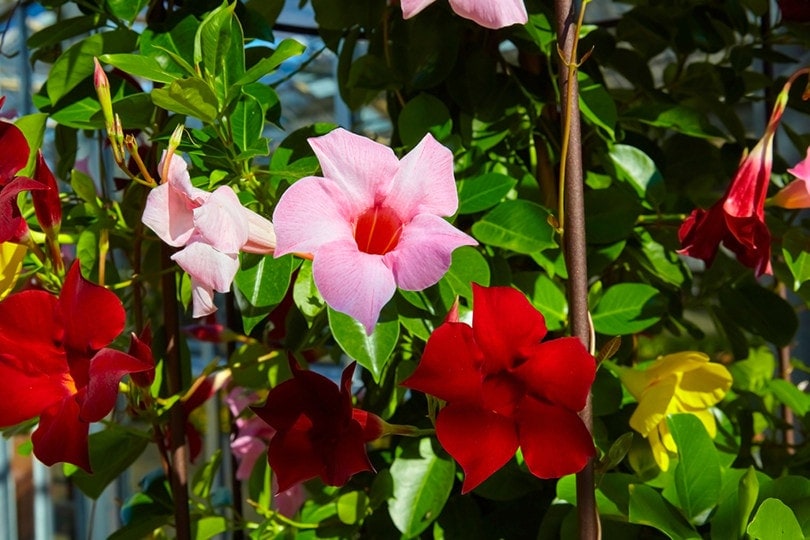
6. Madagascar Jasmine
The most common names for Madagascar Jasmine (Stephanotis Floribunda) include Bridal Wreath, Waxflowers, or the Hawaiian Wedding Flower. They are usually grown as house or garden plants. They have leathery oval leaves and soft white flowers that are non-toxic to cats, dogs, and horses.
7. Night-Blooming Jasmine
Night-blooming Jasmine (Cestrum nocturnum) is a part of the nightshade family and should never be brought near animals. All parts of this plant, including the leaves, berries, and flowers, are toxic to most mammals. That means dogs, cats, horses, and even humans should stay away from it. Night-blooming Jasmine contains alkaloids with wide-ranging neuromuscular, gastrointestinal, and cardiopulmonary symptoms.
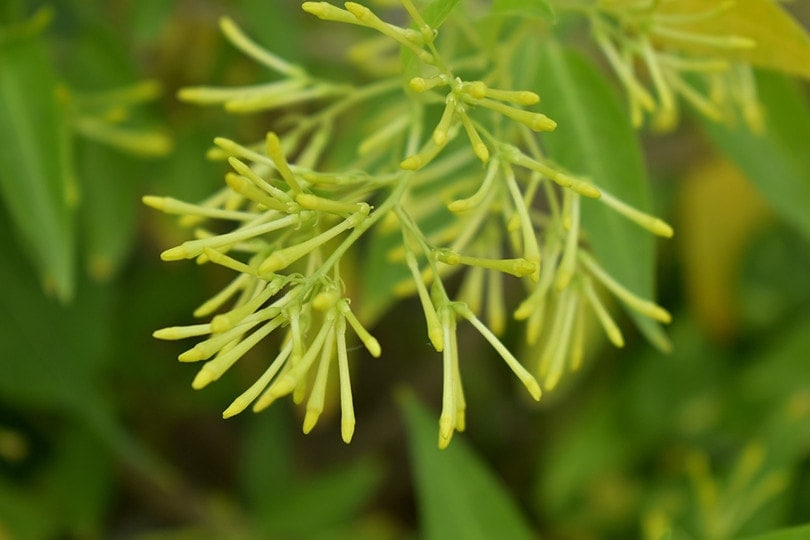
8. Orange Jasmine
One of the most popular Jasmine varieties is Orange Jasmine (Murraya paniculata). This is a hardy hedge plant and ornamental tree. It is extremely beautiful and, thankfully, not toxic to cats.
9. Red Jasmine
Red Jasmine (Jasminum beesianum) is not toxic to cats however, some other plants are also known as red Jasmine (e.g. Plumeria rubra) and may be toxic to cats. Exposure could cause severe salivation, vomiting, and diarrhea. So check the exact plant that you have to ensure it is not toxic.
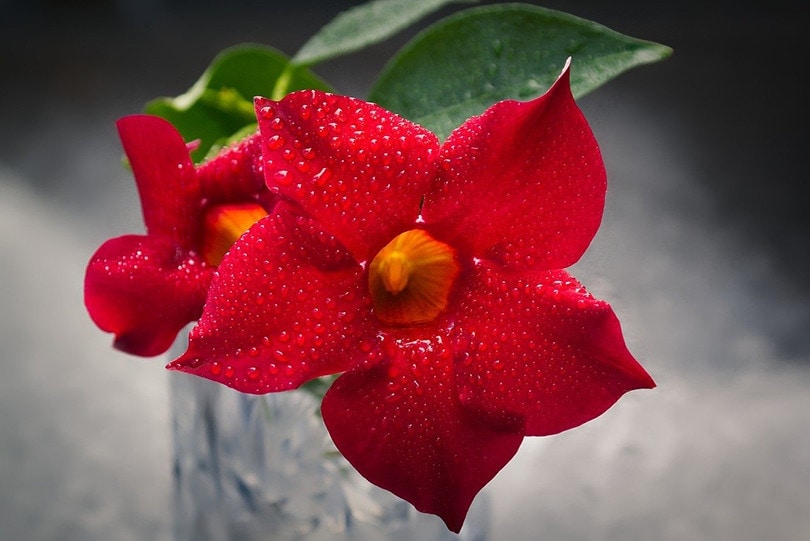
10. Star Jasmine
If you’re looking for the perfect Jasmine houseplant, then Star Jasmine (Trachelospermum jasminoides) is your best bet. This is a common garden plant. The flowers are highly fragrant, and they attract lots of beneficial insects to the garden. Better yet, they aren’t toxic to cats, dogs, or humans.
Final Thoughts
People often don’t realize just how many plants out there are a danger to their beloved companions. There are certainly safe options, but be careful about your choices and always do your research before bringing any plants near your pets. You’d be surprised how many toxic plants are out there and sold at local nurseries and even hardware stores. If you suspect your cat is suffering in any way, take them to see a veterinarian as soon as possible.
- Related Read: Are Bonsai Trees Poisonous To Cats? Risks & Safety Tips
Featured Image Credit: Hans, Pixabay


